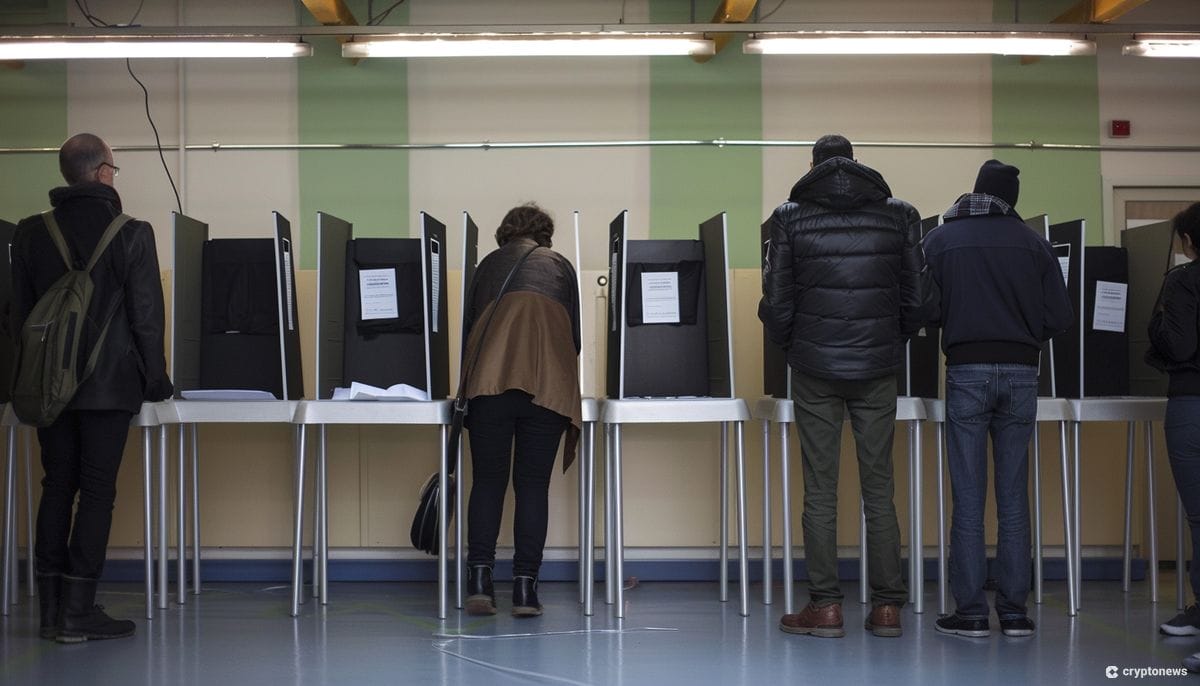The upcoming UK election is swaying towards Labour, but likely won’t change the trajectory of the Conservative’s crypto legislation efforts.
Since it was elected in May 2010, the Conservative Party has implemented measures to foster a positive crypto environment.
In 2022, Rishi Sunak announced the vision for UK Crypto in the global financial market. The intention was to make the UK a “global hub for crypto assets technology.”
Something that the UK has since been working towards. In June 2023 UK parliament voted to recognize Crypto as a financial instrument, allowing it to be regulated by the Financial Conduct Authority (FCA).
In February 2024 parliament planned to get lawmakers’ approval for legislation to facilitate the introduction of stablecoins and staking, aiming to enact it by mid-2024.
This is believed to be a realistic goal before the upcoming election. Although, the specific date of the election has yet to be announced.
The country’s regulators, including the Bank of England and the FCA, have been proactive by releasing discussion papers on stablecoins. This indicates the Conservative government is on track to implement regulation.
Economic Secretary Bim Afolami confirmed this progress during a Financial Times Crypto and Digital Asset Summit. He said:
“What I’m very confident we’ll be able to achieve is the secondary legislation around staking and stablecoins. Those two things are absolute priorities in the coming weeks and months.”
UK Labour Election Win Won’t Stop Progression
The UK’s recent local election witnessed a notable surge in support for the Labour Party, resulting in significant setbacks for the Conservatives.
Labour gained 186 seats out of a total of 1,158, while the Conservatives lost 474 seats, as per BBC data.
However, Labour is expected to continue the Conservative approach to crypto. In a financial services agenda, Labour outlined its goals to establish the UK as a hub for securities tokenization.
“Tokenization, which U.K. Finance defines as ‘the digital representation of financial assets using distributed ledger technology,’ presents a significant new opportunity for the UK.”
Over the past year, there has been a significant rise in real-world asset (RWA) tokenization protocols. This came with massive adoption, growing to over 8 billion dollars in total value locked (TVL).
Something that has been anticipated to redefine crypto with real-world applications. Many projects are in line to revolutionise conventional asset classes.
Investment bank Citi Group estimated that tokenized assets could be worth close to $4 trillion globally by 2030 in a report published in 2023. In the report, they cited a Labour-governed UK as a catalyst, saying:
“A future Labour government will therefore look to make the U.K. a global leader in tokenization by advancing work to clarify the law around tokenization, and working with regulators to establish a proportionate, outcomes-based regulatory regime to oversee the technology.”
Despite a clear vision, Labour has yet to clarify specifically how they plan to regulate Crypto.
Elections Play a Key Role in Crypto’s Future
Elections are now crucial to the future of cryptocurrency. As major jurisdictions emerge as hubs for cryptocurrency development, it is critical to establish strong regulatory support for the technology.
One of the most significant is the US. The 2024 election is shaping up to be pivotal in the future of cryptocurrency in the country.
Something that has become a major issue among voters in The 2024 US Elections, according to a Digital Currency Group poll.
This is primarily fueled by the contrasting views held by leading candidates. The current Biden administration has displayed a rigorous regulatory standpoint which has been interpreted as hostility by some.
Cardano CEO Charles Hoksinson criticized the US government’s actions over the past few years. He stated that they “hurt [the crypto] industry in every way possible.”
Biden and Crypto https://t.co/P06encxBEv
— Charles Hoskinson (@IOHK_Charles) May 8, 2024
On the other hand, the Trump administration seeks to foster a more supportive environment for crypto in the US.
During a Q&A session, he agreed that many cryptocurrency businesses are leaving the country “because of the hostility.” He claims:
“Well, we’ll stop it because I don’t want that… If we’re going to embrace [crypto], we have to let them be.”
i asked donald trump how he’s going to keep crypto businesses in america.
sounds bullish 🇺🇸 pic.twitter.com/rvuztPmQ8P
— Malcolm (33.3%) (@macdegods) May 9, 2024
This serves as a key indication of how regulatory styles impact the crypto space. They have the power to push development and innovation or stagnate it.
Read the full article here


